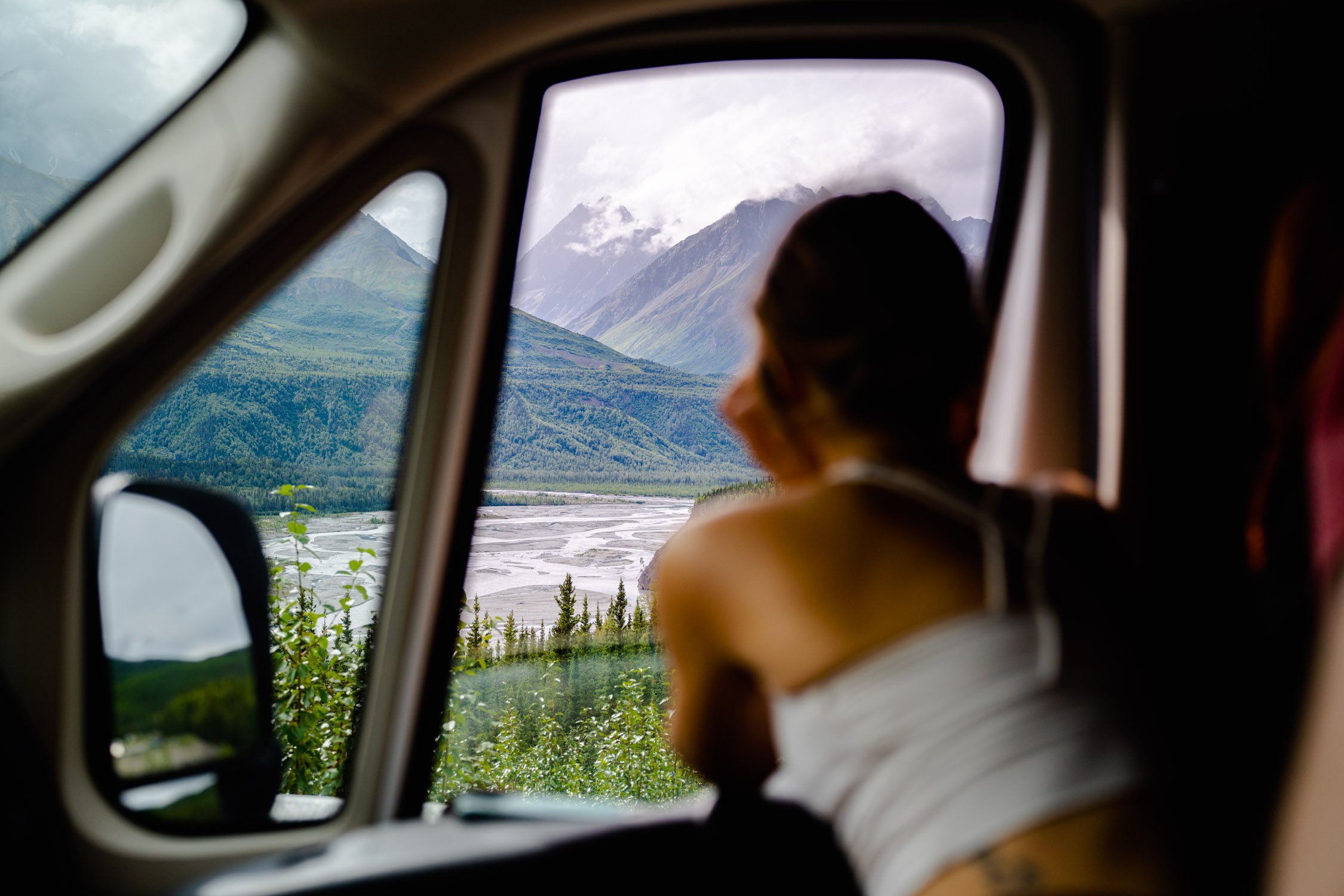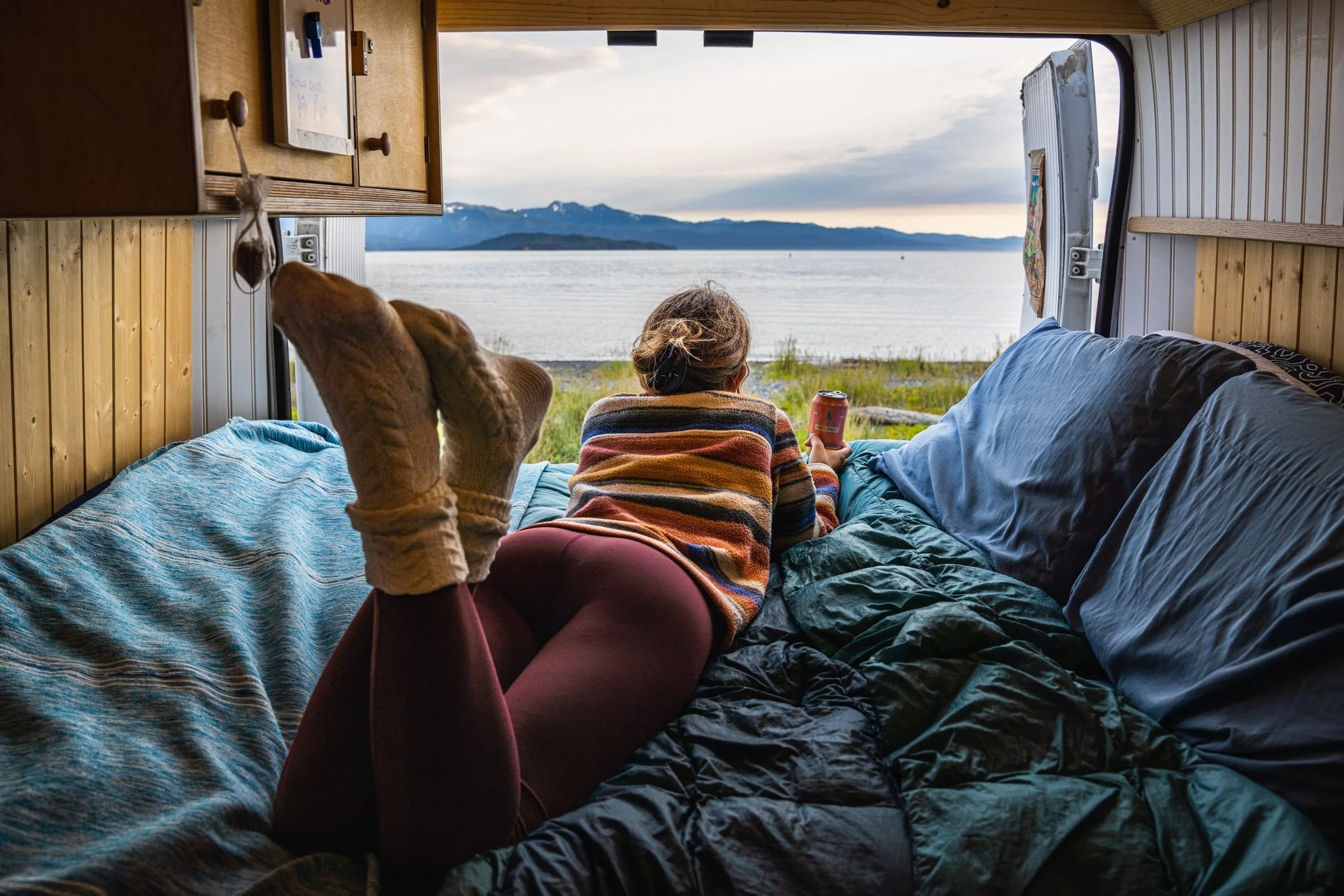Van Life vs. Overlanding, What's The Difference?
Both van life and overlanding have boomed in recent years, but what is the difference? Both use a vehicle, both symbolize freedom, both allow you to reconnect with nature, but there are some major differences to explore the open road. While both involve a mobile existence and a love for exploration, they represent distinct approaches to the nomadic lifestyle, each with its own set of advantages and challenges.
Parking at the beach, watching the sunrise over Conception Bay in Baja. Photo by Dalton Johnson
Van Life:
Van life, as the name suggests, involves converting a van into a cozy, compact home on wheels. It's about minimalism, simplicity, and the freedom to pick up and go whenever the mood strikes. Vanlifers often opt for smaller vans, such as the iconic Volkswagen Transporter or the more spacious Mercedes Sprinter, and transform them into personalized, self-contained living spaces.
One of the key appeals of van life is the ability to bring the comforts of home on the road. Van conversions can include sleeping quarters, a small kitchen, and even a bathroom, providing a level of convenience that is unmatched in many other forms of nomadic living. This makes van life an excellent choice for those who value creature comforts and want the flexibility to explore without sacrificing basic amenities.
Moreover, van life is inherently adaptable. Urban adventures, remote nature escapes, and everything in between become accessible when your home is on wheels. The intimacy of the van also fosters a close connection with the surrounding environment, blurring the lines between indoor and outdoor living. Sunsets become your wallpaper, and the open road your backyard.
However, the compact nature of vans means limited space, which can be a challenge for long-term living or for those traveling with a family. Additionally, the initial cost of converting a van can be significant, and parking restrictions in urban areas may limit the freedom to roam at will. Despite these challenges, van life continues to captivate individuals seeking a taste of the nomadic lifestyle with the added comfort of a mobile home.
Overlanding:
Overlanding, on the other hand, is a broader concept that emphasizes the journey itself rather than the destination. Overlanders typically use purpose-built vehicles, often modified 4x4s or off-road-capable trucks, to tackle a variety of terrains and navigate challenging landscapes. The overlanding community thrives on the spirit of self-sufficiency and the desire to explore remote and less-traveled routes.
The essence of overlanding lies in the rugged adventure of off-road travel. Whether crossing deserts, traversing mountains, or fording rivers, overlanders are equipped to handle a wide range of environments. Overland vehicles are kitted out with essentials like rooftop tents, camping gear, and sometimes even portable showers, ensuring self-sufficiency in the wild.
Overlanding allows for a deeper immersion in nature and a sense of isolation that van life might struggle to achieve. The ability to traverse rough terrains means overlanders can reach truly remote destinations, far from the beaten path, where the journey becomes as important as the end goal. For those who crave the thrill of exploration and the challenge of diverse landscapes, overlanding provides the perfect canvas.
However, overlanding comes with its own set of challenges. The off-road capability of the vehicles often results in a compromise on comfort. Sleeping in a rooftop tent or a ground tent may not provide the same level of comfort as a cozy bed in a van. Additionally, overlanders need to be more self-reliant, as they might find themselves miles away from the nearest town or service station. Vehicle maintenance and repair skills are essential, as breakdowns can happen in remote areas where professional help is scarce.
Choosing Your Path:
In the debate of van life vs. overlanding, the ideal choice depends on individual preferences, priorities, and the type of adventure one seeks. Those who value the comforts of home and desire the freedom to roam urban areas might find van life more appealing. On the other hand, individuals with a thirst for rugged landscapes, off-road challenges, and a deeper immersion in nature may be drawn to the adventurous spirit of overlanding.
Some enthusiasts, however, find a harmonious blend of both lifestyles. Converting a 4x4 van allows for a combination of the comfort of van life with the off-road capabilities of an overlanding vehicle. This hybrid approach provides the best of both worlds, allowing for exploration in urban settings and venturing into the wild.
Andrew and Kicker waking up to sunrise in Baja. Photo by Dalton Johnson
In the end, whether you choose the cozy confines of a converted van or the rugged versatility of an overland vehicle, both lifestyles offer the freedom to write your own story on the open road. The key is to find the balance that aligns with your values, aspirations, and the type of adventure that fuels your wanderlust. After all, the road less traveled is meant to be explored, and whether you do it in a van or an overlanding rig, the journey is yours to define.












